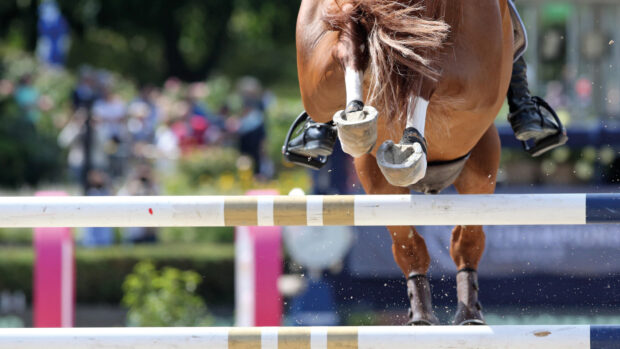Equestrian bodies have attempted to answer riders’ questions surrounding riding and caring for horses under the tighter restrictions announced by the Prime Minister on Monday night (23 March).
Boris Johnson told everyone to “stay at home” for at least the next three weeks in a move to slow the spread of coronavirus. He added people should only leave their homes to shop for basic necessities; one form of exercise a day; any medical need, to provide care or to help a vulnerable person; and travelling to and from work, where this is absolutely necessary and cannot be done from home.
The British Equestrian Federation (BEF), British Horse Society, British Grooms Association, Equestrian Employers Association, National Trainers Federation (NTF), National Association of Stable Staff have all urged their members to follow government advice and issued further guidance.
“The welfare of horses, and other livestock, is still essential, making your travel as an employee, owner or volunteer to provide care valid under the current guidance,” states the BEF statement on 24 March.
“Please keep your own health and safety in mind, as well as that of everyone around you.
“At present, there are no definitive guidelines or restrictions around caring for and riding horses, and we will share anything which becomes available from government via the British Horse Council.”
The statement encourages riders to keep visits to attend to their horses to a minimum and observe social distancing when there, as well as respecting any restrictions put in place by the yard.
“There is currently no government guidance that we are aware of in relation to riding, so it is down to you to decide whether this is necessary,” adds the BEF statement.
“Given that health services are currently stretched to capacity, it’s sensible to avoid any activities that carry an increased risk of injury, such as jumping, fast work and riding a young, fresh or spooky horse.
“If you must hack out, be mindful of other people walking, cycling and running, and keep the 2m distance. Lungeing, in-hand work and turn-out are good alternatives to ridden exercise.
“We continue to strongly recommend against any unnecessary travel, which includes transporting your horse for anything other than emergency care. Travel to competition or training venues, having a coach travel to your yard, having a lesson at a riding centre or riding in large groups is not advised.”
The BEF is encouraging riders to have a plan in place for their horse’s care should they be unable to get to the yard. Vets and farriers are permitted to work and the BEF suggests discussing precautionary measures with them ahead of their arrival. Vets may also be opting to focus on emergency treatment ahead of visits for routine procedures.
The federation has also published a checklist to help owners stay safe and prevent the spread of the virus, which has been added to H&H’s Q&A page here.
The BHS agrees that grooms or the sole carer for a horse should travel to provide care.
“Where horses are kept in livery the BHS advises that horse owners respect the protocol put in place by the yard owner or manager and work as a team to agree a care plan for your horse(s),” adds the latest BHS advice.
“There are no specific government guidelines for the question around whether we should still be out riding at present.
“Our strong advice is that it is not appropriate to put unnecessary pressure on the emergency services now or for the foreseeable future. It is incumbent on all of us to make an individual decision as to whether riding is necessary at all, at this time.
“Decisions can only be taken based on individual circumstances but our choices should always be mindful of the potential impact for ourselves and others.”
BHS chief executive James Hick clarified the gold membership public liability insurance remains valid during the pandemic, unless advised otherwise. He also stressed members should “always be mindful of the potential impact for ourselves and others” when making the decision as to whether to ride or not.
The NTF advice states it is following the example of other European racing jurisdictions where there are severe restrictions on movement have already been implemented, in that racehorses are continuing to be exercised.
“Our advice to you is therefore to continue getting horses out on the gallops and other exercise areas, while observing the distancing rules with the utmost discipline,” adds the NTF statement.
“Tell your staff that failure to observe the rules is a disciplinary offence. Make sure you, as their employer, lead by example and that all the necessary equipment and advice is available in the yard for them to wash and dry hands, clean surfaces, and keep at least 2m apart.”
Racing in Ireland, which had been going ahead behind closed doors, was cancelled today until at least 19 April, along with all other sporting fixtures.
Would you like to read Horse & Hound’s independent journalism without any adverts? Join Horse & Hound Plus today and you can read all articles on HorseandHound.co.uk completely ad-free





